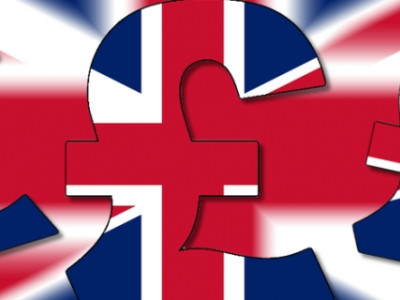Professor Lion Shahab, Professor of Health Psychology and Co-Director of the UCL Tobacco and Alcohol Research Group, UCL, said: “The letter of the Health and Social Care Committee to the Secretary of State for Health and Social Care, published today, makes some very sensible suggestions following a recent evidence session on Youth Vaping.
“The key challenge for the government is to balance the benefits of e-cigarettes for helping smokers stop using the mostly deadly of products, cigarettes, with the potential risks they have for encouraging youth vaping. While e-cigarettes confer only a fraction of the harm of cigarettes, they are not risk free, which is of particular concern if their availability results in long-term use among youth who would have never smoked.
“Clearly, neither e-cigarettes nor cigarettes should be promoted to youth and reducing their appeal to kids is sensible. The letter calls for restrictions on packaging and marketing of vapes, akin to those that apply to tobacco products. However, the devil will be in the detail. Brightly coloured e-cigarettes, flavours and ads with apparent youth appeal need to be restricted, but it is important that no regulatory equivalence is drawn with cigarettes.
“Cigarette use still kills 75,000 people each year in the UK, and e-cigarettes have helped drive down smoking rates in the adult population. Yet, recent negative press has meant that, even among smokers, nearly 60% now believe that – compared with cigarettes – e-cigarettes are as or more harmful, which may discourage switching to these harm reduction products.
“Further, while concerns about new disposable vapes (the likes of “Elfbar”) are justified, given the big increase in their use by youth, they are also adopted by smokers trying to quit cigarettes. A key policy therefore should be restricting access to these products to those who need them: smokers.”
He says the letter “rightly calls” for more resources and enforcement powers for trading standards to ensure that those selling adolescents age-restricted vapes are punished and for a review of proposals of a specific excise tax on disposable to make them less affordable.
“However,” Professor Shahab continues, “it will again be important to consider unintended consequences as cost (and flavour choice, for that matter) is an important driver for switching to e-cigarettes for smokers as well.
“Studies in the United States show that flavour restrictions and tax increases imposed on e-cigarettes have the desired effect of reducing e-cigarette use but, unfortunately, also increase cigarette use. Finding a happy medium of regulations will not be easy but agreeing on the desirable outcome of any policy change should be: for adult smokers e-cigarettes ought to be more easily available (and appealing) than cigarettes, while adolescents should not be targeted by e-cigarette companies nor should underage youth be able to access e-cigarettes (or any tobacco product) in retail outlets.”
Dr Sarah Jackson, Principal Research Fellow, UCL Tobacco and Alcohol Research Group, UCL, added: “The rise in disposable vaping among young people is a cause for concern, and I welcome the call for tighter regulation. However, the approach will need to be carefully considered in order not to deter people who smoke from switching to vaping – or to trigger people to relapse back to smoking. For example, increasing the cost of disposable vapes in line with non-disposable vapes would continue to offer a considerable cost-saving for smokers (the average smoker in England spends approximately £20 on cigarettes each week1), while making them less affordable for young people. However, restrictions on flavoured vapes could have unintended consequences, as flavours are an important part of the appeal for people who smoke.
“I echo ASH’s caution against an outright ban on disposable vapes: while it may seem like a simple solution, it risks driving demand toward an unregulated black market. We know that legal nicotine vapes pose a fraction of the risks of smoking cigarettes, but the risks of illegal vapes – which may contain banned ingredients or fail to meet safety standards – are unclear.”
Finally, Professor Nick Hopkinson, Professor of Respiratory Medicine, Imperial College London, affirmed: “The evidence is clear that e-cigarettes are much safer than smoking and at least as effective as nicotine replacement therapy in people who are trying to quit smoking.”
He believes we need to make sure that e-cigarettes are available to help smokers while taking steps to stop children vaping.
“We know what worked to bring down youth smoking,” Professor Hopkinson stated. “We need to do the same things to make vaping less affordable and appealing to young people. A £5 excise tax on disposable vapes will mean they are no longer available for pocket money prices and bring them within the excise control regime so that HMRC and Border Force can work to stop illegal imports.
“The government voted against giving itself powers to control the marketing of vapes to children back in 2021, so we are playing catch up now and there is no time to lose.”
Photo Credit:
Photo by Taton Moïse on Unsplash, cropped and resized
Dave Cross
Journalist at POTVDave is a freelance writer; with articles on music, motorbikes, football, pop-science, vaping and tobacco harm reduction in Sounds, Melody Maker, UBG, AWoL, Bike, When Saturday Comes, Vape News Magazine, and syndicated across the Johnston Press group. He was published in an anthology of “Greatest Football Writing”, but still believes this was a mistake. Dave contributes sketches to comedy shows and used to co-host a radio sketch show. He’s worked with numerous vape companies to develop content for their websites.
Join the discussion
Harm Reduction For The Rich
The United Kingdom risks becoming a harm reduction country only for the wealthy, according to Michael Landl of the World Vapers’ Alliance
Sacrificing Health For 2p Cut
Tory Government alienates vaping voters with its mission to cut tax by an unaffordable 2p to attract voters by placing a tax on vape products in the forthcoming budget
Scotland Announces Single-Use Vape Action
A ban on the sale and supply of single-use vapes in Scotland is due to come into effect on 1 April 2025, under proposed legislation published today
Industry Licensing Scheme Proposed
A vape industry licensing scheme will generate £50m+ per year to combat underage and illicit vape sales according to industry experts












